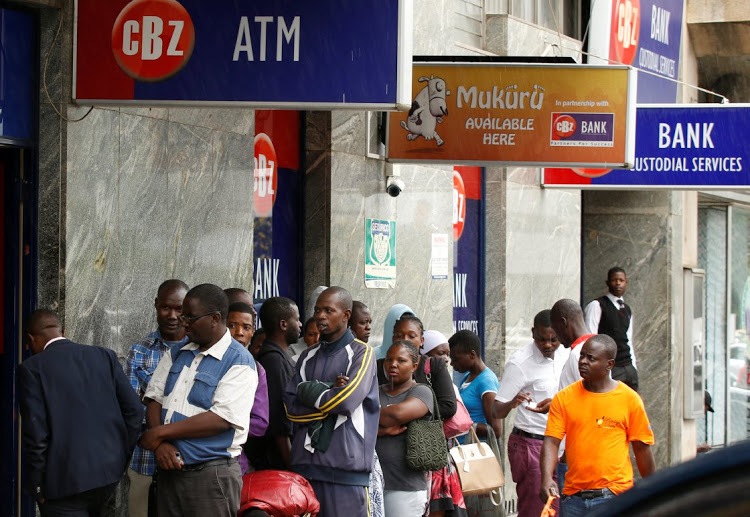HARARE, Zimbabwe – With Zimbabwe’s economy in shambles and political tensions rising, leaving the country seems the best option for many who are desperate for jobs. But those dreams often end at the passport office, which doesn’t have enough foreign currency to import proper paper and ink.
A passport now takes no less than a year to be issued. An emergency passport can take months amid a backlog of 280,000 applications, never mind recent ones.
Zimbabweans at the main office in the capital, Harare, have taken to sleeping in line for any chance at being served the following day — and that’s just to submit an application.
Several million Zimbabweans already left for neighboring South Africa and other countries during years of economic turmoil under former leader Robert Mugabe. The hardships have only deepened under current President Emmerson Mnangagwa, who took over after Mugabe’s forced resignation in late 2017.
The new government’s slogan “austerity for prosperity” now has a bitter ring.
Unemployment is rampant and inflation is at 75%, the highest since 2009, when Zimbabwe’s currency collapsed under the weight of hyperinflation. Rapid devaluation of the local currency against the U.S. dollar — also used as official currency — has seen basic items such as cooking oil changing prices several times a day. The health sector is collapsing, forcing those who can afford it to seek treatment abroad.
At the passport office, the desperation to escape is all too clear.
“Guys, it’s either we jump the queue or we will have to jump the border,” one teenager told a group of friends plotting to sneak to the front of the line.
Another teen, 19-year-old Brian Ndlovu, said coming to the office makes him “feel like there is really no way out of this country. We are trapped.”
The teens’ plot to jump the queue failed, in large part because those at the front had camped there for days and knew each other by name.
Emma Chirwa said she only reached the front of the line because she had been sleeping outside the office since June 5.
“I was No. 34 on Friday. They served no one. On Thursday, they served 12 people,” she said, huddled in a blanket on Sunday night.
In the biting cold of the Southern Hemisphere’s winter, dozens of people, including women with toddlers, slept on cardboard boxes or in the dust, holding their places. Around midnight, one man parked his motorbike and joined his wife in blankets on the line. People laughed.
Some huddled around a fire of scrap wood taken from the grounds of an adjacent school. A small enterprise has emerged, with some young men holding places in the line for a fee. Others sell pens, food items and foreign currency while a generator powered a photocopy machine.
By daylight, the line snaked for more than a kilometer and included school children in uniform.
A preacher holding a Bible took advantage of the crowd to deliver sermons about resilience and hope. But for many, the spirit is slipping.
For those seeking an emergency passport, the task requires multiple lines and a week of sleeping outside the office. One applies for an ordinary passport, then waits for a chance to upgrade the application to an emergency passport. Those who are booked for a date in 2020 have to join another line to plead for an earlier date.
The delays are due to a lack of foreign currency to import special paper, ink and other materials, as well as machine breakdowns, according to the national passport agency’s registrar-general, Clemence Masango.
The Zimbabwe Human Rights Commission, a government body, has described the passport crisis as “a major human rights challenge” and launched an investigation.
In response, officials are promising change.
“We have sourced the foreign currency, and the machine is now working, so the backlog will be cleared soon. We have to bring dignity to our people,” Home Affairs Minister Cain Mathema told The Associated Press on Wednesday, vowing “a return to normalcy” in a month.
But for those badly in need of a legal way out of Zimbabwe, such official statements count for little without action.
In a busy, cramped corridor, people clutching envelopes waited in yet another line outside what they mockingly called the “mercy office.” It is where they plead with senior officials that their situations are dire enough for their emergency passport applications to be processed in days, not months.
One woman said the date she can upgrade her passport application to an emergency one is May 2020.
“My mother needs an urgent medical operation in India,” she said. “She will be dead by then.”
Post published in: Business




















